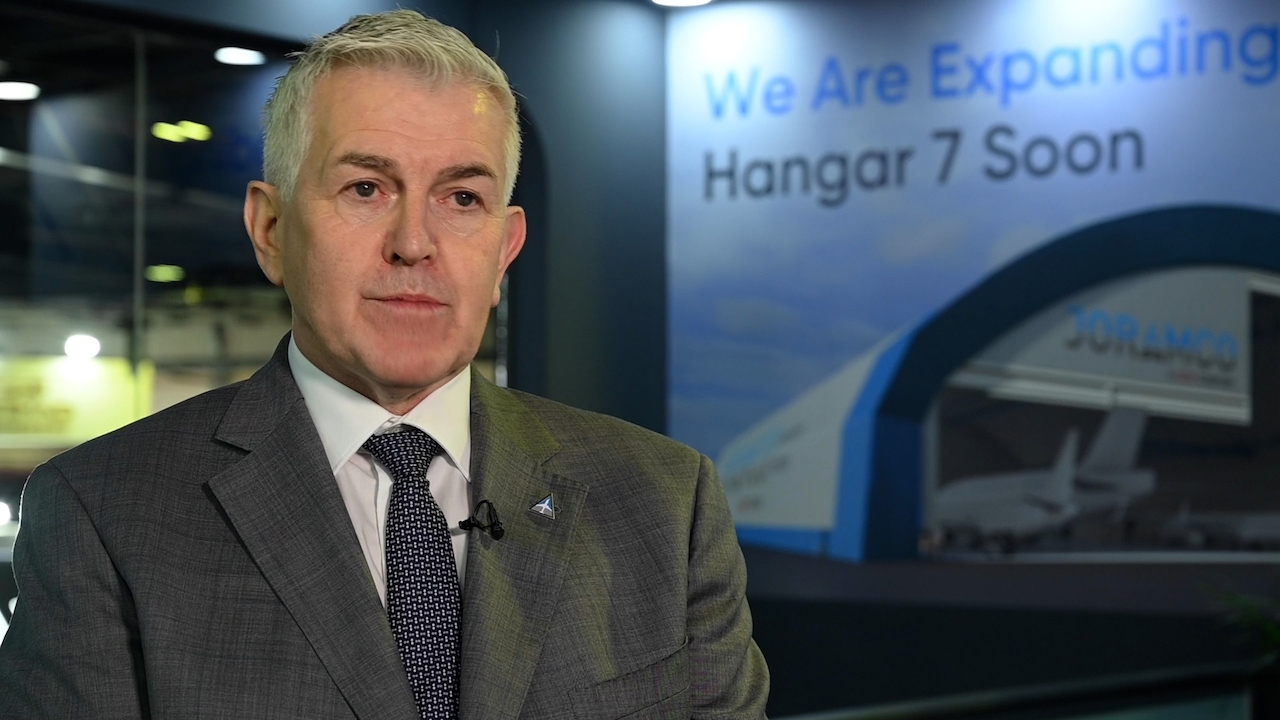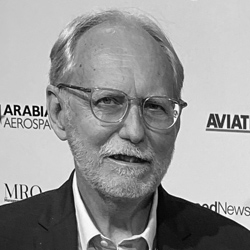The Middle East has a skills mountain to climb
MRO Middle East again provided a forum for assessing the challenges and opportunities confronting the regional industry as it attempts to scale up fast enough to support the ambitions of operators.

Fraser Currie: A forward-looking employee engagement scheme keeps staff attrition low. Photo: Billypix
The shortage of skilled MRO talent hung like a cloud over MRO Middle East as the industry grappled with the quandary of how to staff the myriad facilities planned or under construction.
Conversations at the Dubai show – the biggest to date with more than 8,000 attendees and 250 exhibitors – underlined the fact that nobody is blind to the unique manpower challenges faced by MRO operations in the Gulf. Observers agree, in private at least, that in the GCC countries where demand is highest the problem is rooted in an aversion among today’s young people to getting their hands dirty.
So far, solutions are thin on the ground, but innovative approaches to attracting, training and retaining qualified people at least hold promise. Realising that it takes more than the salary to keep people, several organisations are adopting a whole-career approach.
Joramco chief executive Fraser Currie said in an interview that retention of staff “is a challenge”, with poaching still prevalent. But despite the siren call of larger organisations, the Amman-based independent MRO has “very low” attrition, thanks in part to a forward-looking employee engagement scheme launched about two years ago. By adopting “modern concepts of how you build up your entire package and what that package is worth as a total”, Joramco maintains an attrition level that Currie said “most companies in North America and Europe would love to have.”
In booming Saudi Arabia, a massive training academy is planned at Saudia Technic’s MRO Village in Jeddah to address the “tremendous shortage in talent” forecast until at least 2035, said Saudia Technic chief executive Fahd Cynndy. In his view, a sustainable talent pipeline needs training capacity and funding, and guaranteed jobs for graduates – all of which his training academy will provide for up to 1,100 students a year.
Looking to support the Saudis is Lufthansa Technik (LHT), whose senior director corporate sales Middle East and Africa, Tim Butzmann, said training is one area under discussion with Saudia Technic. He said his Saudi counterparts were interested in how to capture LHT’s work ethic. “They tell us they are more after the attitude, structures, managing and monitoring efficiency etc – how we do it.
“They’re not alone – others are interested too.
“What we’re currently doing as a first step is inviting key people from Saudia Technic to shadow our technicians in our Middle East facility in Dubai. We’ll arrange something similar to be done in Germany.”
David Doherty, vice-president commercial of Etihad Engineering, told the Go Live! Theatre audience: “There’s no point in complaining [about the skilled manpower shortage] if you’re not prepared to do something about it.”
Etihad Engineering runs development programmes for both Emirati talent and aviation graduates of other nationalities and is thinking outside the box with “old-fashioned” apprenticeships aimed at the next generation of expats in the UAE. Said Doherty: “We have expat school-leavers – people already in the UAE – who at 16-17 normally have to get a job or leave the country. We want to develop something that would let people stay.”
What’s envisaged – and already in preliminary discussions – is a three-four year course leading to a City and Guilds-type qualification and guaranteed employment with Etihad Engineering. “If we could do it successfully internally, we could roll it out to other MRO operations who perhaps aren’t large enough to justify an apprenticeship scheme of their own.”
Such a programme could also help the talent retention problem, appealing to the emotional attachment to the host country that exists among the long-term expat community.
Sanad, the Abu Dhabi-based engine MRO, is tackling the problem with a coordinated approach to training and retaining staff, said chief executive Mansoor Janahi. “We’ve been working on it for years.”
He said the company was working with its parent, Mubadala Investment Company, and several local colleges on a technical apprenticeship programme “to create a sustainable pipeline of talent” into its business. A cohort of 15 high school leavers had been enrolled this year.
For current staff – “our rising stars” – Sanad provides leadership development opportunities. Said Janahi: “We did a scheme with Luiss Business School in Rome. We want to give our talent immersive experiences – across-the-board, cross-country leadership development.”
The company was also exploring giving its people training exposure with its OEM partners, seeing it as a “strong value proposition” for employees, 15% of whom are women.
Elsewhere, frustrations at a ‘broken’ supply chain boiled over during panel discussions on use of alternative parts. In an instant poll, the audience criticising contracts, including leasing agreements, for constraining use of USM and PMA parts in the Middle East. Jim O’Sullivan, vice-president business development at Heico, said of current rules: “One size does not fit all – some parts may have even further restrictions.
“There should be a solution to this challenge since generally, a lessor does not want a surprise at the end of a lease – they want a smooth end and transaction.”
Teardown and part-out were part of MTU Maintenance’s approach to the changing scenario in the region, said MTU’s Sami Ben-Kraiem, vice-president sales and marketing for the Middle East and Southeast Asia. As mature widebody engines such as the GE90-110/115B came out of OEM support contracts, independent MRO providers needed to come up with new solutions for life-limited parts replacement and heavy maintenance.
At MTU, that requirement has translated into adding slots for GE90s at its Hannover base, expanding its GE90 lease pool, and invested in teardowns to increase access to used material, he said.
“This is all an effort to support the world’s fleets, especially in times of longer turnaround times as a result of supply chain constraints,” he said. “More than ever, we have to put greater emphasis on spare engine levels, USM and pool parts.”
Stay up to date
Subscribe to the free Times Aerospace newsletter and receive the latest content every week. We'll never share your email address.


